Allergic Conditions
Allergy
The incidence of allergies is increasing, particularly in industrialized areas. Allergic inflammation can differ substantially in intensity. Traditional drug therapy such as antihistamines, corticosteroids, anticholinergic agents and leukotriene inhibitors is important in reducing and preventing symptoms and is essential in acute use. More recent therapies including anti-immunoglobin E (IgE) therapy, anti-interleukin (IL) monoclonal antibodies, and phosphodiesterase 4/phospholipaseA2 inhibitors, have improved outcomes. However, in order to develop more effective therapies, further research is needed into the molecular mechanisms underlying allergy onset, particularly in terms of intracellular reactions and the cytosolic Ca2+ balance.
Browse our selection of video highlights and short articles from the conference hub, providing insights into the latest updates from major conferences and a selection of peer-reviewed articles from the journal portfolio.
Our supporting partners do not constitute an endorsement of the content on this page.

In this episode, we speak with leading paediatric allergist Prof. Helen Brough to explore the key factors behind why some children develop allergies to foods such as peanuts, and what we can do to help prevent them. We also examine the latest developments in managing food allergies and the innovations on the horizon that could transform how we treat them.

Physician burnout is at a critical point. In this episode, Nicky speaks with Dr Alfred Atanda about why so many physicians are burning out and what can be done to change the trend. From personal experience to system-wide solutions, Dr Atanda shares valuable insights on improving physician well-being and building a more effective healthcare culture.
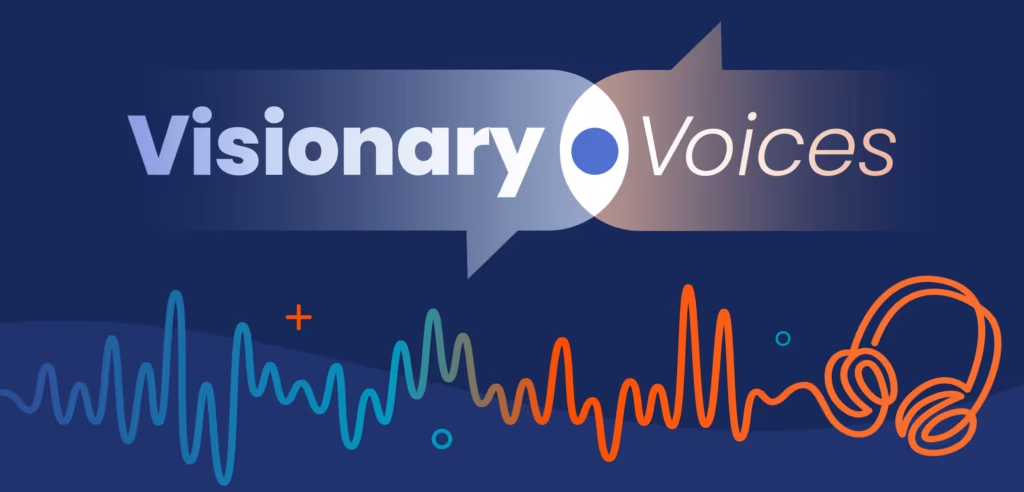
In this episode, we explore the future of continuing medical education (CME) with the team behind touchIME. Hannah Fisher and Matthew Goodwin share insights into global and US trends, the importance of patient inclusivity and how educational outcomes are evolving to better measure the direct impact of learning on clinical practice and patient care.

The IMPACT-PLuS long-term follow-up trial found that children who underwent peanut oral immunotherapy in the earlier IMPACT trial maintained significant changes in their allergen-specific IgE and IgG4 profiles, which could have positive implications for long-term allergy management.

Epinephrine is the first-line treatment for severe allergic reactions, including anaphylaxis, where prompt intervention is crucial. Epinephrine sublingual film, a novel prodrug of epinephrine, is being developed to treat Type 1 allergic reactions, such as anaphylaxis. In the OASIS study, epinephrine sublingual film demonstrated equal or superior pharmacokinetics compared to intramuscular epinephrine in adult patients with oral allergy syndrome. The film led to rapid symptom resolution, with a median recovery time of 12 minutes. Additionally, stability tests showed that the film remained effective under extreme temperatures and real-world conditions, ensuring its reliability as an emergency treatment for anaphylaxis.

The FDA has approved a 1 mg epinephrine nasal spray for treating type I allergic reactions, including anaphylaxis, in children over 4 years old, weighing between 15 and 30 kg. This nasal spray offers a needle-free alternative to traditional epinephrine injections, which may be avoided due to fear, especially among children.
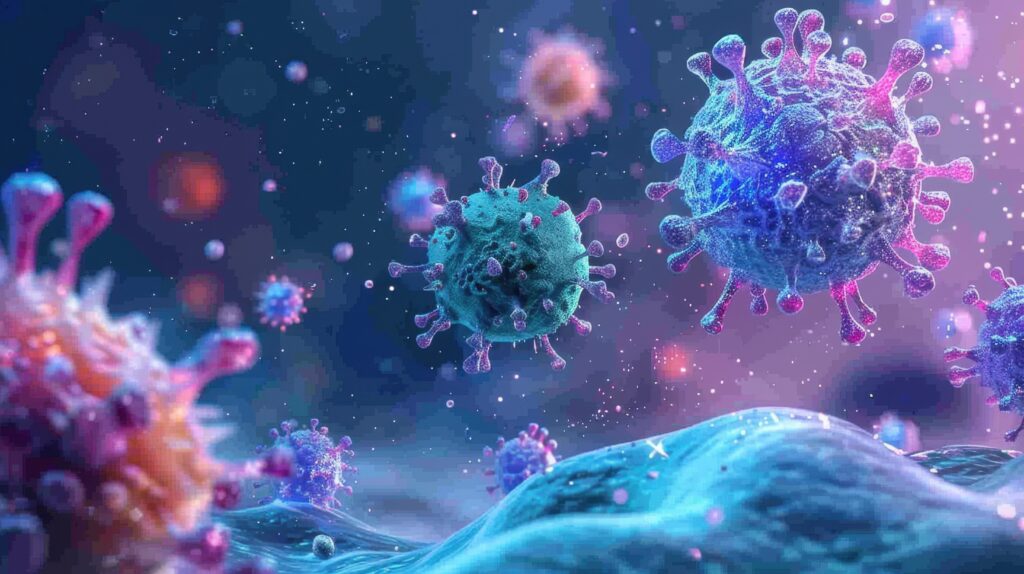
A globally recognized allergologist specializing in urticaria, drug allergies, and angioedema, Professor Luis FC Ensina has significantly advanced clinical care, research, and education. As a Professor at the Federal University of São Paulo and coordinator of its specialized outpatient clinic, he leads Alergoalpha, a Center of Excellence for UCARE, ACARE, and ADCARE, where he has overseen over 20 clinical trials and authored more than 100 publications. A founder of the Brazilian Urticaria Network (RUBRA) and co-author of international urticaria guidelines, he has played a pivotal role in shaping global standards for allergy care. Active in organizations such as GA2LEN, AAAAI, and EAACI, he highlights the transformative potential of emerging therapies, gene therapy, and artificial intelligence to redefine allergy and immunology practice worldwide.

Multidisciplinary experts discuss the diagnosis and management of patients with systemic mastocytosis.




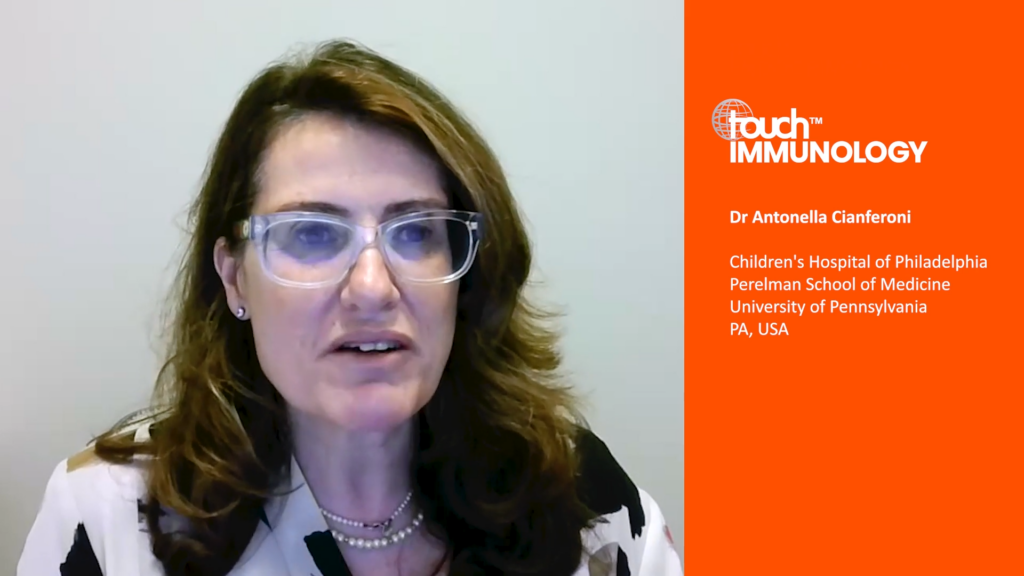
An allergist shares her expert insights on the latest guidance for the diagnosis and management of food allergies, including the role of novel diagnostic tools and emerging therapies in clinical practice.
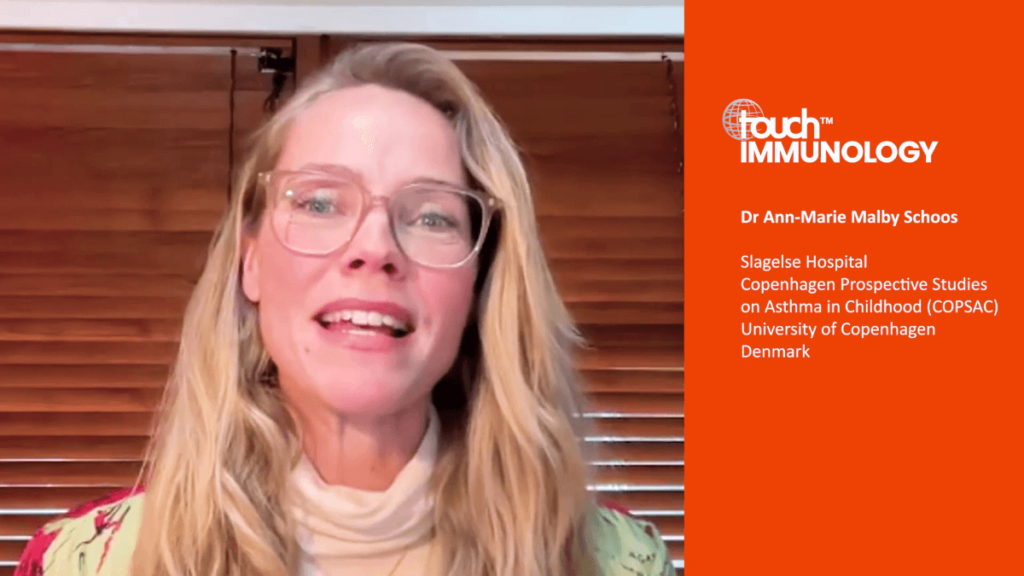
An allergist shares her expert insights and guidance on key clinical questions around the changing paradigm in the diagnosis and management of pet allergies.
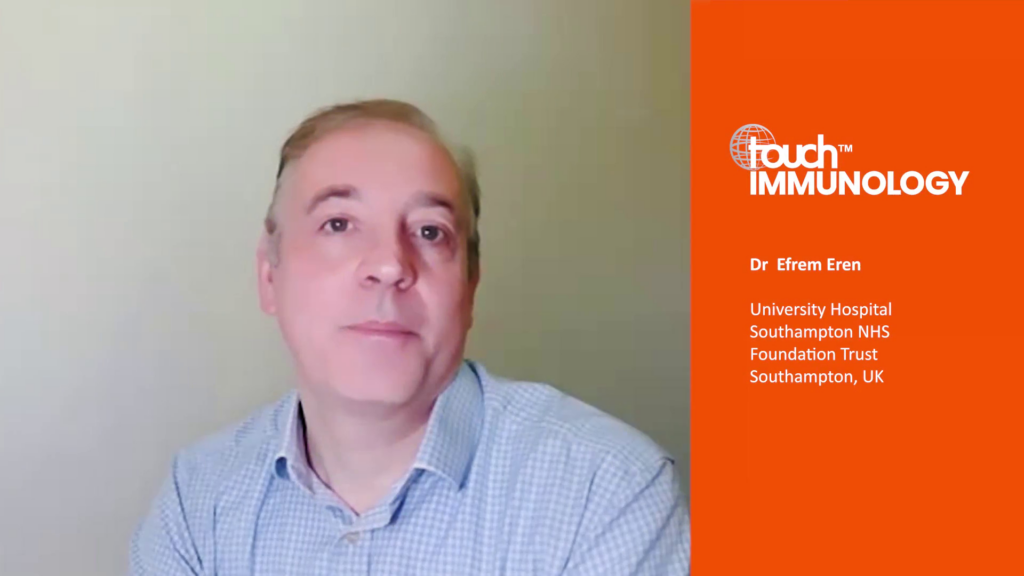
Three experts discuss the challenges related to recognizing, diagnosing and treating patients with eosinophilic oesophagitis (EoE) and highlight how advances in diagnostic tools and emerging treatments may impact future care.





The CRUSE® app has been developed for the self-management of chronic spontaneous urticaria (CSU), and to help physicians develop personalised treatment strategies for patients. touchIMMUNOLOGY were delighted to speak with Prof. Marcus Maurer (Professor of Dermatology and Allergy, Charité – Universitä...
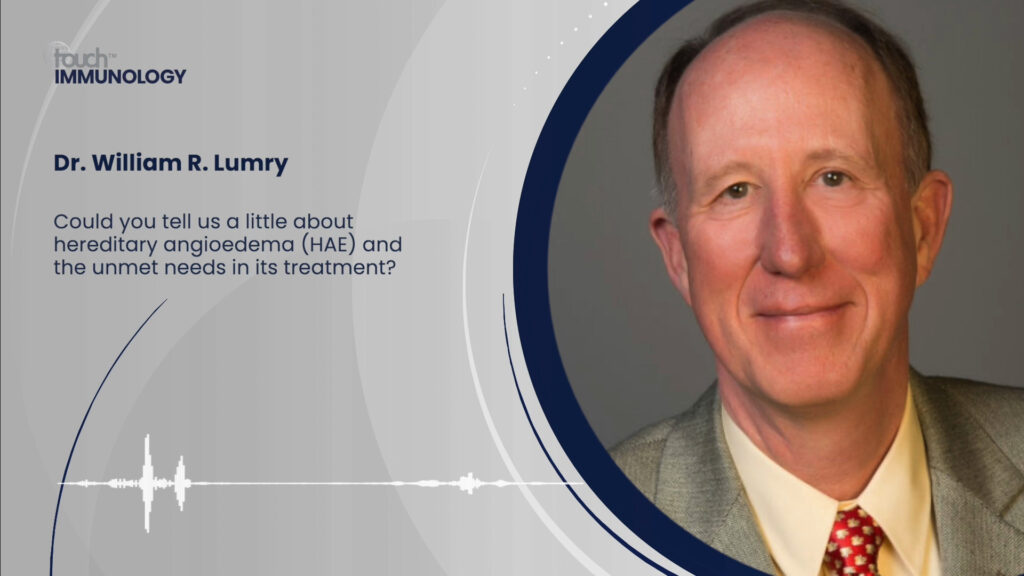
The SPRING Study (NCT04070326) was a phase 3 study that investigated the safety, pharmacokinetics, and pharmacodynamics of lanadelumab for prevention of hereditary angioedema (HAE) attacks in children. touchIMMUNOLOGY were delighted to speak with Dr. William R. Lumry (UT Southwestern Medical Center, ...

Hereditary angioedema (HAE) is a rare genetic disease that reduces C1 inhibitor levels and impacts the regulation of several pathways involved in dilation of the blood vessels and results in recurrent episodes of severe swelling. touchIMMUNOLOGY were delighted to speak ...

Mannan conjugated birch pollen allergoids are an immunotherapy currently under clinical investigation for the treatment of birch pollen allergy. touchIMMUNOLOGY caught up with Prof. Ralph Mösges (University of Cologne, Cologne, Germany) to discuss the rationale and methodology of the ...
Latest articles videos and clinical updates - straight to your inbox
Log into your Touch Account
Earn and track your CME credits on the go, save articles for later, and follow the latest congress coverage.
Register now for FREE Access
Register for free to hear about the latest expert-led education, peer-reviewed articles, conference highlights, and innovative CME activities.
Sign up with an Email
Or use a Social Account.
This Functionality is for
Members Only
Explore the latest in medical education and stay current in your field. Create a free account to track your learning.





